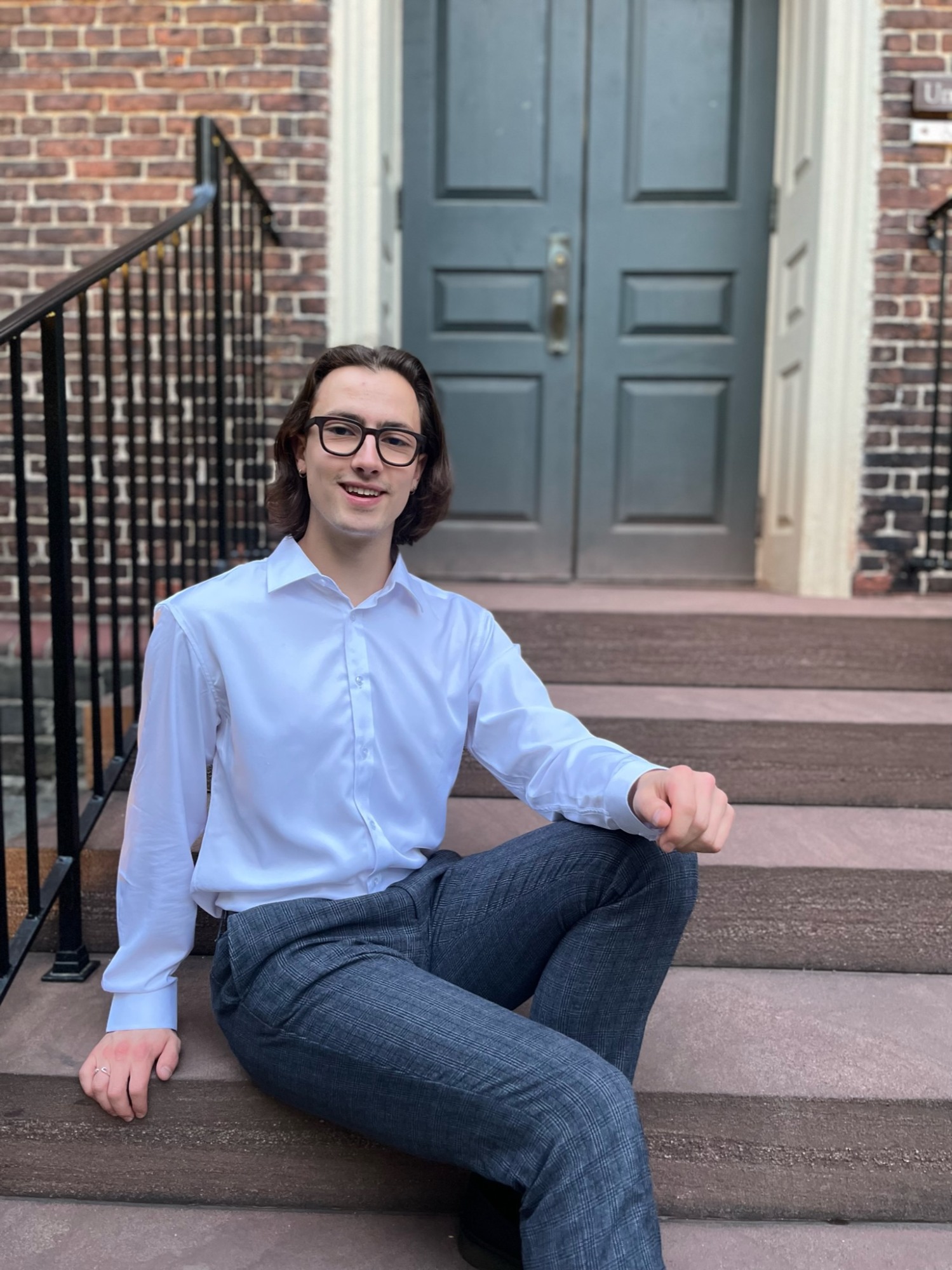Q. What advice can you offer incoming physics students?
A. Seek out community or create if if you don't find any. Building relationships and camaraderie in the department is the most sustainable way to succeed and feel happy. Focus on concepts over calculations, process over outcome and try to find some kind of joy or fascination in the work that you're doing.
Q. What was your favorite physics course and why?
A. Not exactly a physics course, but PHYS 1720 with Professor Volovich was really the course that changed me into a real college-level student, and the math we learned is still helpful in my daily work. It doesn't hurt that she's also one of the best professors I've ever had at Brown. I also loved PHYS 1420 and PHYS 1530 with Professor Dimitri Feldman, whose lectures I will never forget, even if I do forget about degenerate perturbation theory.
Q. What do you consider to be the most impactful lesson you learned at Brown Physics?
A. You need to learn to trust yourself and own your own shortcomings and mistakes, often people will not do either of these things for you. The process of learning your true worth as a scientist and student can only happen from within. Feeling unsure of yourself for long periods of time is the price of admission for doing something radically interesting with your life and academic journey, so don't kid yourself into thinking everybody else has it figured out!
Q. What is your fondest memory of your time in the Physics Department?
A. Seeing all of my classmates present their honors theses and marveling at how far we've come.
Q. What was the biggest obstacle you had to overcome on your journey to obtaining your degree?
A. For me, the biggest obstacles were a persistent sense of imposter syndrome and a fear that my degree wasn't going to lead to a career that I'd be happy in. Imposter syndrome got to the point where I would intentionally not do assignments or let myself fail things in order to try and align my work with my negative perception of myself, which sounds very intense but is something I know many people struggle with. I would highly recommend therapy and self-care activities like journaling and meditation to everyone. The workload for any STEM concentration is grueling at times and it's crucial to maintain your mental health. I have also had many friends in the department who are underrepresented minorities in physics, and want to emphasize not only how grateful I am for these friendships and how they have inspired me, but also to say how important it is for all of us in Physics to create a more inclusive, loving environment. Please know you're not alone and many people are willing to help you if you ask!
Q. Who would you like to thank?
A. I'd love to thank my community at Brown, especially my friends in the department, who helped each other survive quarantine and inspired each other to achieve great things. I'd like to show appreciation to all the faculty, staff and administrators who helped us put on student events and cared about department culture. Finally, I'd love to thank the younger students who took care of the DUG and other physics department traditions after I stepped away, it gives me a lot of hope to see continued engagement, especially coming from such a diverse and brilliant group.
Q. Relate a story of your fondest memory with your friends in the Physics Department. What were you doing? How does this memory make you feel?
A. There are many memories that I'll remember fondly: Crossing a frozen river with my physics friends to reach natural hot springs in my home state of Idaho; Dancing all night at the International Physics Congress Ball in Washington, DC; Laughing over Bad Physics Movie Night and attending our regular zoom HEC's (High-energy Chocolate) with the DUG that got us through COVID.
Q. What is next for you?
A. I will be pursuing a Ph.D. in Nuclear Science and Engineering at MIT under Dr. Pablo Rodriguez-Fernandez, working on high-fidelity physics models of fusion energy devices.